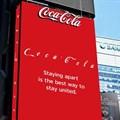The 2020 Nedbank IMC 2020 virtual conference took place on Friday, 24 July featuring Joe Public United's Pepe Marais as the master of ceremonies.
One of the highlights for me was Verusha Maharaj, advertising and marketing lead at Deloitte Consulting's presentation on how marketers can retain their existing customer base and embrace the new. She also elaborates on how marketers can start building trust and get consumers to fall in love with their brands during the pandemic.
Maharaj said that Covid-19 is pushing us into a future that we were already heading towards but faster than we ever thought, and talked through some of the trends that she has observed during this time.
"I'm sure many of us in the industry have come across marketing budgets being cut first during this time. We've almost become a soft target for businesses. But it is important to remember that a cut in marketing activity is just a short-term fix that will definitely have long-term consequences."
Maharaj said that maintaining visibility in your market is essential for future profitability. In fact, best practice and long-term studies actually show that the right approach during economic uncertainty is to increase, not decrease your marketing spend.
"Some brands have had to completely refresh their business models in order to meet customer needs. A brilliant example of this is the South African brand, Granadilla Swim. They've launched Granadilla Eats, using the Granadilla brand and team and have partnered with local farmers and popular small businesses to sell fresh fruit and vegetables."
She mentioned the fact that conferences around the world have been cancelled due to Covid-19 concerns and said that marketing teams had to be innovative and agile in ways of reaching their customers. Like IBM did with their Think Conference that went completely digital and reached three times more than their original conference did.
"The ways in which people spend their leisure time is changing because of the outbreak and the related social distancing measures and again, these habits are likely to be sustained," she said.
Maharaj continued and said that more than half, in fact, 61%, plans to continue watching more news after the outbreak, while 51% will prioritise more time with family. We've seen entertainment, learning and DIY on the rise. She said she herself went from never baking a thing in her life to baking banana bread every three weeks.
"A new fear-based change in consumer habits has also resulted in a change in the way that consumers shop. 73% of local consumers now prefer to shop near home. 66% prefer electronic payments over cash and 63% are sticking to the brand they know and love.
"During Covid-19, retailers, big and small have been scrambling to set up an online presence, with mixed results. Those brands which have spent the last couple of years investing in their online customer journeys, be it via their website, their app or new technologies like live-streaming are definitely seeing the pay-off."
She said that the factors that are influencing brand decisions are also changing and we are seeing this 'buy local' trend accelerating. The desire to shop local is reflected in both the way they shop and the products they buy. Self-isolation has also lead to increased digital and broadcasting media and as well as an increased presence on social networks, with a rise in 43% in Facebook use and 45% in WhatsApp use.
"But digital is likely to be the clear winner here and companies, even ones who haven't had a Facebook page before, will need to move into social marketing, content marketing, SEO and influencer-led campaigns."
She said she thinks it's time for us to get back to basics. She held up a recent consumer survey and highlighted three things that stood out:
1. Communication is key
65% of consumers indicated that their likelihood of purchasing would be based on how well the brand responds to the crisis. 55% of consumers perceived that brands were responding more quickly and effectively to the pandemic than what their government was.
2. Brands as advisors
Maharaj said that consumers continued to have faith in the brands and the companies that stand behind them. A brilliant example of a brand as an advisor was the video that Dove released on their handwashing techniques:
3. Strike the right tone
And lastly, she said that it is important to realise that your existing creative might strike the wrong tone and push customers away.
"The McDonald's team in Brazil decided to redraw the iconic arches that made up the brand's logo. Pulling the two sides of the M apart to signal social distancing, and it received an amazing response."
Maharaj said that companies that put their customer needs first, that take a scalpel and not a cleaver to their marketing budget, and nimbly adjust strategies, tactics and product offerings in response to the shifting demand, are more likely than others to flourish. Both during and after recession.
So based on this context, she listed a few steps she thinks we should be taking to move forward. Click below for part 2:
Bizcommunity attended the Nedbank IMC 2020 live stream. Follow @IMCConf @IMCConference #NedbankIMC2020 #MarketingWorks for some standout insights.









































![#NedbankIMC2020: Marketing works... but what about during the pandemic [Part 1]](https://biz-file.com/c/2007/568038-700x364.jpg)
![#NedbankIMC2020: Marketing works... but what about during the pandemic [Part 1]](https://biz-file.com/c/2007/568043.png)
![#NedbankIMC2020: Marketing works... but what about during the pandemic [Part 1]](https://biz-file.com/c/2007/568040.jpg)
![2020 2.0, the new normal and what's next for brands [Part 1]](https://biz-file.com/c/2005/554996-120x120.jpg?2)


![#NedbankIMC2020: Marketing works... but what about during the pandemic [Part 2]](https://biz-file.com/c/2007/568201-120x120.png?2)







